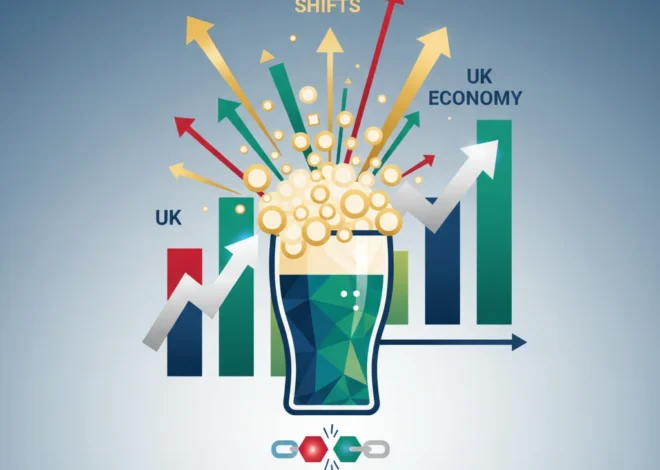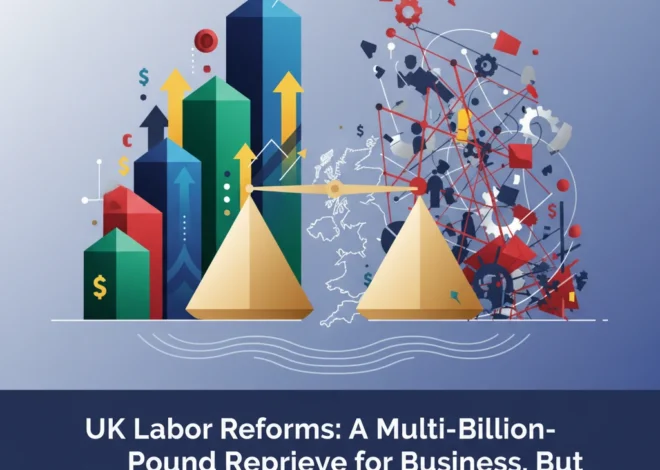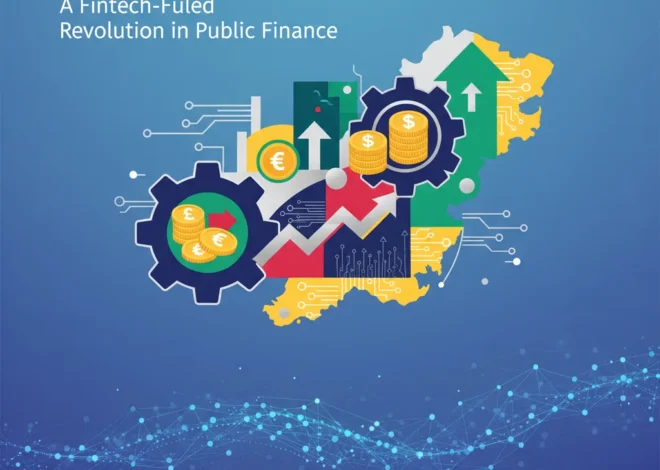
The Millionaire’s Gambit: Why the Super-Rich Are Demanding to Pay More Tax
It sounds like a headline from a satirical newspaper: “Millionaires Demand Higher Taxes.” Yet, this is the reality unfolding in the upper echelons of the global economy. In a move that defies conventional wisdom about wealth preservation, a growing chorus of the world’s richest individuals is publicly campaigning to increase their own tax burden. Ahead of the UK’s recent Budget, two prominent British businessmen, former derivatives trader Gary Stevenson and Riverford founder Guy Singh-Watson, made headlines by explicitly asking the chancellor to make them pay more. This isn’t an isolated incident; it’s the public face of a movement that is gaining momentum, forcing a critical re-evaluation of wealth, inequality, and the very foundations of our economic system.
Why would those who have mastered the game of capitalism advocate for rules that would seemingly put them at a disadvantage? The answer is complex, weaving together threads of economic theory, social responsibility, and a pragmatic fear for the long-term stability of the system that created their fortunes. This article delves into the heart of this paradox, exploring the arguments for and against a wealth tax, its historical context, and the profound implications for the future of finance, investing, and the global economy.
The Architects of Their Own Taxation: Who Are the “Patriotic Millionaires”?
The call for higher taxes on the wealthy is not just a fleeting sentiment; it’s an organized campaign. Gary Stevenson and Guy Singh-Watson are part of a global group known as the “Patriotic Millionaires,” an organization of high-net-worth individuals who believe the current economic system is dangerously unbalanced. Stevenson, a former star trader at Citibank who made his fortune betting on the very economic inequalities he now decries, offers a unique insider’s perspective. He argues that extreme wealth concentration isn’t a sign of a healthy economy, but a symptom of a system nearing a breaking point.
Guy Singh-Watson, founder of the organic vegetable box company Riverford, echoes this sentiment from an entrepreneurial viewpoint. He has built a successful, employee-owned business and advocates for an economy that rewards work and contribution over passive wealth accumulation. Their argument is that decades of tax cuts for the rich have not “trickled down” to create broad prosperity but have instead hollowed out public services and frayed the social fabric. As they stated in their open letter, they see it as a moral and economic imperative to contribute more to the public purse to fund essential services like the NHS, education, and social care, which form the bedrock of a functional society and a robust economy.
The Great Legal Shake-Up: Is Private Equity About to Buy into Big Law?
The Economic Case for Taxing Wealth
The core argument put forward by proponents of a wealth tax is rooted in the staggering levels of wealth inequality that characterize many developed nations. In the UK, the gap is particularly stark. The wealthiest 1% of households hold a disproportionate share of the nation’s assets, a concentration that has significant economic consequences. Proponents argue that a modest annual tax on the very largest fortunes could generate substantial revenue for the state, which could be used to reduce national debt, invest in infrastructure, or lower taxes on lower and middle-income earners.
This isn’t just about redistribution; it’s about economic efficiency. Mainstream economics suggests that money in the hands of lower-income individuals has a higher “velocity”—it is spent more quickly and re-enters the economy, stimulating demand and growth. Conversely, extreme wealth is often locked in less productive assets or complex investment vehicles, contributing less to the day-to-day economy. A wealth tax, in this view, could unlock some of that stagnant capital and put it to more productive use through public spending and investment.
To illustrate the potential impact, let’s consider a hypothetical scenario based on analysis from organizations like the Wealth Tax Commission. While figures vary, the potential revenue is significant.
| Proposed Wealth Tax Rate | Wealth Threshold | Estimated Annual Revenue (UK) | Potential Public Spending Equivalent |
|---|---|---|---|
| 1% per year | On net assets over £10 million | ~ £10-15 billion | Roughly 20-30% of the core schools budget |
| 2% per year | On net assets over £50 million | ~ £8-12 billion | Funding for thousands of new doctors and nurses |
Note: These figures are illustrative estimates based on various proposals and are subject to significant debate regarding valuation and behavioural responses.
Challenges and Counterarguments: The Other Side of the Coin
Of course, the proposal of a wealth tax is fraught with complexity and faces fierce opposition. Critics, including many economists and business leaders, raise several valid and powerful counterarguments. The most prominent concern is capital flight. In a globalized world, wealth is mobile. Opponents argue that the super-rich would simply move their assets—or themselves—to more favorable tax jurisdictions, a phenomenon that has been observed in some European countries that implemented wealth taxes (source). This could lead to a net loss for the Treasury, as other taxes like income and consumption tax would also be lost.
Another significant hurdle is the practical difficulty of valuation. How do you accurately and fairly assess the value of illiquid assets like fine art, private company shares, intellectual property, or sprawling estates on an annual basis? This process would be administratively costly and likely to generate endless legal challenges. The rise of new asset classes, such as those managed via `blockchain` technology, adds another layer of complexity to tracking and valuation, though some argue `fintech` could also provide part of the solution.
Finally, there is the core economic argument that a wealth tax disincentivizes success. Critics contend that it punishes saving and `investing`, discouraging the very entrepreneurship and risk-taking that fuel economic growth. If the reward for building a successful business is an annual levy on its value, the incentive to take that initial risk may be diminished, potentially leading to a less dynamic `economy` in the long run.
The Mamdani Effect: Why a Local Election Signals a Seismic Shift in Geopolitical Investing
Global Context and the Future of Financial Technology
The debate over taxing wealth is not confined to the UK. It’s a central issue in the United States, across Europe, and in developing nations grappling with their own inequality crises. The global nature of the problem has led to calls for greater international cooperation to prevent tax avoidance and evasion. Initiatives like the OECD’s Base Erosion and Profit Shifting (BEPS) framework are early steps in this direction. The rise of `financial technology` presents both a challenge and an opportunity. While cryptocurrencies and decentralized finance (DeFi) can make wealth harder to track, the same technological tools—AI, big data analytics, and digital ledgers—could also be used by tax authorities to create a more transparent and efficient system of tax collection on a global scale.
What This Means for Investors and the Stock Market
For investors, business leaders, and finance professionals, the growing momentum behind a wealth tax is a trend that cannot be ignored. Its implementation would have far-reaching consequences for the `stock market` and investment strategies.
- Asset Allocation: A tax on net worth could prompt a shift in how the wealthy hold their assets. There might be a move away from easily valued public equities and towards more complex, harder-to-value private assets or tax-sheltered vehicles.
- Market Liquidity: To pay an annual wealth tax, individuals may be forced to liquidate portions of their stock portfolios, potentially creating downward pressure on the `stock market`, particularly if many high-net-worth individuals sell at the same time.
- The Rise of Tax-Advisory Fintech: The complexity of a wealth tax would create a boom for the wealth management and `banking` sectors. We would likely see a surge in `fintech` platforms and services designed specifically to help clients manage, value, and structure their assets for optimal tax efficiency. This would become a critical component of modern `trading` and portfolio management.
Conclusion: A Tipping Point in Economic Discourse
The call from millionaires to tax themselves more is more than just a political stunt; it’s a powerful symbol of a potential shift in our collective understanding of wealth and responsibility. It forces a conversation that moves beyond the simplistic binary of “pro-tax” versus “anti-tax” and into a more nuanced discussion about the kind of society and `economy` we want to build. The arguments from both sides are compelling—the need for public investment and social stability on one hand, and the concerns about capital flight and economic dynamism on the other.
Whether or not a wealth tax is ever implemented in the UK or elsewhere remains to be seen. However, the fact that the conversation is being driven by the very people it would target suggests that the status quo is becoming untenable. For investors, policymakers, and the public alike, this debate is a crucial one. It challenges us to rethink the purpose of wealth, the role of taxation, and how to build an economic system that is not only prosperous but also sustainable and fair for generations to come.


